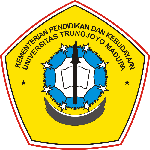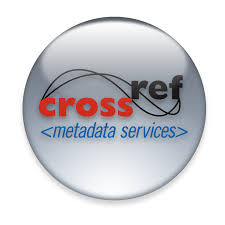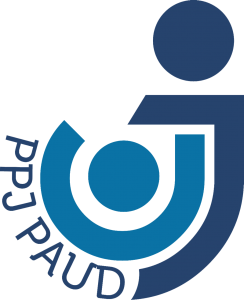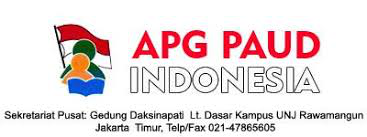Systematic Literature Study on Early Numeracy: Relations between Early Numeracy in Early childhood and Children's Mathematics
Abstract
Numeracy is one of the skills that must be possessed by early childhood. Numeracy skills are important to be stimulated as preparation for children to face everyday problems, especially those related to mathematics. The absence of a literacy and numeracy framework means that there are no boundaries or descriptions regarding the relationship between early numeracy and mathematics. The purpose of this study was to find and describe the relationship between early numeracy and mathematics in early childhood. This study used a systematic literature review approach with the PRISMA (Preferred Reporting Items for Systematic Review and Meta-Analysis) procedure. The objects used in the study were journal articles that were indexed nationally and internationally. The results of the study were 284 articles, 198 of which entered the screening stage, 26 articles at the eligibility stage and 22 articles that met the inclusion criteria. The results of the analysis of 22 articles that had gone through the research procedure showed that numeracy skills had a positive correlation with mathematics. The relationship that occurs between the two, namely aspects and indicators in numeracy, can be a predictor of children's mathematical abilities and achievements in the future. Conducting an assessment of early numeracy skills can detect children who have potential difficulties in learning mathematics, so providing intervention to children is a form of support to prepare children to have mature numeracy skills and have good mathematical achievements.
Keywords
Full Text:
PDFReferences
Afandi, F., Jafar, M. I., & Adnan. (2021). Hubungan Kemampuan Literasi Numerasi dengan Hasil Belajar Matematika Siswa Kelas V SD Gugus II. Jikap PGSD: Jurnal Ilmiah Ilmu Kependidikan, 5(3), 423–430. https://ojs.unm.ac.id/JIKAP/article/view/21625.
Ain, S. Q., Mustika, D., & Wulandari, A. (2023). Permasalahan pembelajaran literasi numerasi dan karakter untuk siswa sekolah dasar. Aulad: Journal on Early Childhood, 6(2), 152–158. https://doi.org/10.31004/aulad.v6i2.452.
Ainanda, D. A., Hidayat, M. T., Hartatik, S., & Nafiah. (2023). Pengaruh Pembelajaran Numerasi Terhadap Kemampuan Menyelesaikan Masalah Matematika Siswa Kelas IV SDN Rungkut Menanggal 1 Surabaya. NUSRA: Jurnal Penelitian Dan Ilmu Pendidikan, 4(3), 518–529. https://doi.org/https://doi.org/10.55681/nusra.v4i3.1244.
Amalia, R., Mulawarman, M., Mulyani, P. K., Hayati, I. R., & Sa’idah, A. Y. N. (2023). Kajian Perkembangan Sosial Emosional Anak Usia Dini (Systematic Literature Review). Aulad: Journal on Early Childhood, 6(3), 454–461. https://doi.org/10.31004/aulad.v6i3.565.
Ashkenazi, S. S., Roell, M., McCaskey, U., Cachia, A., Borsy, Gregoire, B., Tuura, R. O., & Kucian, K. (2024). Are numerical abilities determined at early age? A brain morphology study in children and adolescents with and without developmental dyscalculia. Developmental Cognitive Neuroscience, 67(February). https://doi.org/10.1016/j.dcn.2024.101369.
Astuti, R. A. W., Suseno, B. A., Utami, P. P., & Kegiye, A. (2023). Literasi numerasi anak usia dini dalam pembelajaran ragam hias papua menggunakan limbah anorganik dan teknik khombow. DESKOVI : Art and Design Journal, 6(1), 75. https://doi.org/10.51804/deskovi.v6i1.13111.
Aunio, P., Korhonen, J., Ragpot, L., Törmänen, M., & Henning, E. (2021). An Early Numeracy Intervention for First-graders At Risk for Mathematical Learning Difficulties. Early Childhood Research Quarterly, 55, 252–262. https://doi.org/10.1016/j.ecresq.2020.12.002.
Aunio, P., & Niemivirta, M. (2010). Predicting children’s mathematical performance in grade one by early numeracy. Learning and Individual Differences, 20(5), 427–435. https://doi.org/10.1016/j.lindif.2010.06.003.
Aunio, P., & Räsänen, P. (2016). Core numerical skills for learning mathematics in children aged five to eight years – a working model for educators. European Early Childhood Education Research Journal, 24(5), 684–704. https://doi.org/10.1080/1350293X.2014.996424.
Ayuningtyas, N., & Sukriyah, D. (2020). Analisis pengetahuan numerasi mahasiswa matematika calon guru. Jurnal Matematika Dan Pendidikan Matematika, 9(2), 237–247.
Azhima, I., Rizkina, S., & Rambe, R. Y. (2023). Analisis Kemampuan Matematika Permulaan Anak Usia Dini ditinjau dari Gaya Belajar Visual. Jurnal Review Pendidikan Dan Pengajaran, 6(4), 3384–3391.
Baharuddin, M. R., Sukmawati, & Christy. (2021). Deskripsi Kemampuan Numerasi Siswa dalam Menyelesaikan Operasi Pecahan. Pedagogy: Jurnal Pendidikan Matematika, 6(2), 90–101. https://doi.org/https://doi.org/10.30605/pedagogy.v6i2.1607.
Bora, I. F. R., & Sum, T. A. (2023). Penanganan Kekerasan Mental Anak (Konteks Kekerasan Mental Anak Usia Dini selama Covid-19). Jurnal Obsesi : Jurnal Pendidikan Anak Usia Dini, 7(2), 1696–1709. https://doi.org/10.31004/obsesi.v7i2.4030.
Braeuning, D., Ribner, A., Moeller, K., & Blair, C. (2020). The Multifactorial Nature of Early Numeracy and Its Stability. Frontiers in Psychology, 11(November), 1–13. https://doi.org/10.3389/fpsyg.2020.518981.
Chan, J. Y. C., & Scalise, N. R. (2022a). Numeracy skills mediate the relation between executive function and mathematics achievement in early childhood. Cognitive Development, 62(January). https://doi.org/10.1016/j.cogdev.2022.101154.
Chan, J. Y. C., & Scalise, N. R. (2022b). Numeracy Skills Mediate The Relation between Executive Function and Mathematics Achievement in Early Childhood. Cognitive Development, 62(December 2021), 101154. https://doi.org/10.1016/j.cogdev.2022.101154.
Cuder, A., Vidoz, M., De Vita, C., Pellizzoni, S., & Passolunghi, M. C. (2022). Numerical training videos and early numerical achievement: A study on 3-year-old preschoolers. Brain Sciences, 12(1). https://doi.org/10.3390/brainsci12010088.
Davis-Kean, P. E., Domina, T., Kuhfeld, M., Ellis, A., & Gershoff, E. T. (2022). It Matters How You Start: Early Numeracy Mastery Predicts High School Math Course-taking and College Attendance. Infant and Child Development, 31(2). https://doi.org/10.1002/icd.2281.
Diana, Tasu’ah, N., Zulfikasari, S., & Martika, T. (2023). Ece teachers’ roles of developing numeracy literacy in special needs children. JPUD - Jurnal Pendidikan Usia Dini, 17(2), 267–283. https://doi.org/10.21009/jpud.172.06.
Elliott, L., Votruba-Drzal, E., Miller, P., Libertus, M. E., & Bachman, H. J. (2023). Unpacking the home numeracy environment: Examining dimensions of number activities in early childhood. Early Childhood Research Quarterly, 62(December), 129–138. https://doi.org/10.1016/j.ecresq.2022.08.002.
Gal, I., Grotlüschen, A., Tout, D., & Kaiser, G. (2020). Numeracy, adult education, and vulnerable adults: a critical view of a neglected field. ZDM - Mathematics Education, 52(3), 377–394. https://doi.org/10.1007/s11858-020-01155-9.
Gashaj, V., Thaqi, Q., Mast, F. W., & Roebers, C. M. (2023a). Foundations for future math achievement: Early numeracy, home learning environment, and the absence of math anxiety. Trends in Neuroscience and Education, 33, 100217. https://doi.org/10.1016/j.tine.2023.100217.
Gashaj, V., Thaqi, Q., Mast, F. W., & Roebers, C. M. (2023b). Foundations for future math achievement: Early numeracy, home learning environment, and the absence of math anxiety. Trends in Neuroscience and Education, 33, 100217. https://doi.org/10.1016/j.tine.2023.100217.
Gilligan-Lee, K. A., Fink, E., Jerrom, L., Davies, M. P., Dempsey, C., Hughes, C., & Farran, E. K. (2023). Building Numeracy Skills: Associations between DUPLO® Block Construction and Numeracy in Early Childhood. Journal of Intelligence, 11(8). https://doi.org/10.3390/jintelligence11080161.
Gilligan-Lee, K. A., Hodgkiss, A., Thomas, M. S. C., Patel, P. K., & Farran, E. K. (2021). Aged-based Differences in Spatial Language Skills from 6 to 10 years: Relations with spatial and mathematics skills. Learning and Instruction, 73, 101417. https://doi.org/10.1016/j.learninstruc.2020.101417.
Girard, C., Bastelica, T., Léone, J., Epinat-Duclos, J., Longo, L., & Prado, J. (2021). The Relation between Home Numeracy Practices and A Variety of Math Skills in Elementary School Children. PLoS ONE, 16(9 September), 1–25. https://doi.org/10.1371/journal.pone.0255400.
Gunawan, M. T. R., Afriliani, A. T. N., Fitri, D. A. N., Farida, N. A., & Awaliyah, F. N. (2024). Implementation of Early Childhood Mathematics Learning at PAUDQU Al-Anshor. Jurnal Obsesi : Jurnal Pendidikan Anak Usia Dini, 8(2), 272–278. https://doi.org/10.31004/obsesi.v8i2.5455.
Han, W., Susanti, D., Dewayani, S., Pandora, P., Hanifah, N., Miftahussururi, Nento, M. N., & Akbari, Q. S. (2017). Materi pendukung literasi numerasi (L. A. Mayani (ed.)). Kementrian Pendidikan dan Kebudayaan.
Handayani, N. N. L. (2023). Determinasi Pendidikan Matematika Realistik Terhadap Pemecahan Masalah Tidak Tersturktur dengan Kovariabel Literasi Numerasi. Maha Widya Bhuwana : Jurnal Pendidikan, Agama Dan Budaya, 6(1), 1–11. https://doi.org/https://doi.org/10.55115/bhuwana.v6i1.2580.
Hellstrand, H., Korhonen, J., Räsänen, P., Linnanmäki, K., & Aunio, P. (2020). Reliability and validity evidence of the early numeracy test for identifying children at risk for mathematical learning difficulties. International Journal of Educational Research, 102(December 2019). https://doi.org/10.1016/j.ijer.2020.101580.
Hornburg, C. B., Schmitt, S. A., & Purpura, D. J. (2018). Relations between Preschoolers’ Mathematical Language Understanding and Specific Numeracy Skills. Journal of Experimental Child Psychology, 176, 84–100. https://doi.org/10.1016/j.jecp.2018.07.005.
Husna, N. M., Isnarto, I., Suyitno, A., & Shodiqin, A. (2022). Integrasi Literasi Numerasi Dalam Pembelajaran Matematika Di Sekolah. Prosiding Seminar Nasional Pascasarjana, 841–845. http://pps.unnes.ac.id/prodi/prosiding-pascasarjana-unnes/
Illiyin, A. A., Wahyuningsi, S., & Syamsuddin, M. M. (2022). Hubungan pemahaman bahasa matematika dengan keterampilan matematika spesifik anak usia 5-6 tahun. Jurnal Kumara Cendiria, 10(1), 5–6.
Inayah, A. N. A., Nagari, G. P., Setiawan, K., & Anisah, N. (2022). Kemampuan Literasi Numerasi untuk Mengembangkan Pemahaman Konsep dalam Pembelajaran Matematika. Himpunan: Jurnal Ilmiah Mahasiswa Pendidikan Matematika, 2(2), 106–113. https://jim.unindra.ac.id/index.php/himpunan/article/view/6333.
Isnaintri, E., & Novaliyosi, N. (2024). Systematic literature study on numeracy literacy activities: How to implement it. Union: Jurnal Ilmiah Pendidikan Matematika, 12(1), 48–66. https://doi.org/10.30738/union.v12i1.16608.
Jayanti, R., & Cesaria, A. (2024). Pengaruh kemampuan literasi numerasi dan dukungan orang tua terhadap hasil belajar matematika soal cerita di sekolah dasar. Jurnal Inovasi Pembelajaran Matematika: PowerMathEdu, 3(2), 137–148. https://doi.org/10.31980/pme.v3i2.1441.
Khandria Kholifatun, Jumini, S., & Sugiyanto, B. (2023). Hubungan literasi numerasi terhadap Kemampuan pemahaman konsep matematika pada siswa kelas 5 B MIN 3 Banjarnegara. Jurnal Pendidikan Modern, 9(1), 37–44. https://doi.org/10.37471/jpm.v9i1.740.
King, Y. A., & Purpura, D. J. (2021). Direct numeracy activities and early math skills: Math language as a mediator. Early Childhood Research Quarterly, 54(December), 252–259. https://doi.org/10.1016/j.ecresq.2020.09.012.
Lisa. (2018). Pengenalan Berhitung Matematika pada Anak Usia Dini. Bunayya : Jurnal Pendidikan Anak, 4(2), 1–14. https://jurnal.ar-raniry.ac.id/index.php/bunayya/article/view/6805.
Lubis, N. A., & Umar, A. (2022). Pengenalan Konsep Matematika Pada Anak Usia Dini. SEULANGA : Jurnal Pendidik Anak, 3(1), 53–62. https://doi.org/https://doi.org/10.47766/seulanga.v3i1.429.
Marcelino, L., de Sousa, Ó., & Lopes, A. (2017). Predictive Relation between Early Numerical Competencies and Mathematics Achievement in First Grade Portuguese Children. Frontiers in Psychology, 8(JUN), 1–9. https://doi.org/10.3389/fpsyg.2017.01103.
Muhtarom, Adrillian, H., Huda, A. B., & Ribowo, M. (2022). Pengembangan Game Edukasi Matematika untuk Meningkatkan Kemampuan Numerasi Siswa SMP. Transformasi : Jurnal Pendidikan Matematika Dan Matematika, 6(2), 95–108. https://doi.org/DOI: 10.36526/tr.v%vi%i.2176.
Mutaf-Yıldız, B., Sasanguie, D., De Smedt, B., & Reynvoet, B. (2020). Probing the Relationship Between Home Numeracy and Children’s Mathematical Skills: A Systematic Review. Frontiers in Psychology, 11(September). https://doi.org/10.3389/fpsyg.2020.02074.
Perry, B. (2002). Early childhood numeracy. In Australian Research in Early Childhood Education (Vol. 9). http://www.aamt.edu.au/projects/numeracy_papers/perry.pdf.
Purpura, D. J., Napoli, A. R., & King, Y. (2019). Development of mathematical language in preschool and its role in learning numeracy skills. Cognitive Foundations for Improving Mathematical Learning, 5, 175–193. https://doi.org/10.1016/B978-0-12-815952-1.00007-4.
Purpura, D. J., Reid, E. E., Eiland, M. D., & Baroody, A. J. (2015). Using A Brief Preschool Early Numeracy Skills Screener to Identify Young Children with Mathematics Difficulties. School Psychology Review, 44(1), 41–59. https://doi.org/10.17105/SPR44-1.41-59.
Puspitasari, I., & Watini, S. (2022). Penerapan model atik untuk meningkatkan literasi numerasi anak usia dini melalui media menggambar di pos paud flamboyan i. EDUKASIA : Jurnal Pendidikan Dan Pembelajaran, 3(December), 387–398.
Putri, E. S., Yusmin, E., & Nursangaji, A. (2021). Analisis literasi numerasi pada materi persamaan dan pertidaksamaan nilai mutlak linear satu variabel dikaji dari kecerdasan emosional. Jurnal AlphaEuclidEdu, 2(2), 174. https://doi.org/10.26418/ja.v2i2.51508
Rachmawati, R. (2023). Kajian literatur: kemampuan numerasi pada perkembangan peserta didik di lingkungan sekolah. Cakrawala Jurnal Ilmiah Bidang Sains, 2(1), 7. https://doi.org/10.28989/cakrawala.v2i1.1456.
Raghubar, K. P., & Barnes, M. A. (2017). Early Numeracy Skills in Preschool-aged Children: A Review of Neurocognitive Findings and Implications for Assessment and Intervention. Clinical Neuropsychologist, 31(2), 329–351. https://doi.org/10.1080/13854046.2016.1259387.
Raman, M. M., Nabella, D. M., Tarigan, S. D., Siregar, I. D., & Purnomo, H. (2023). Modul Aplikasi Systematic Review dan Meta-analysis. Center for International Forestry Research (CIFOR).
Raniah, D. A., & Rakhmawati, N. I. S. (2023). Meningkatkan kemampuan numerasi anak usia 5-6 tahun melalui pembelajaran steam dan bahan loose parts. Journal on Education, 06(01), 7030–7040.
Ratnasari, E. M. (2020). Outdoor Learning Terhadap Literasi Numerasi Anak Usia Dini. ThufuLA: Jurnal Inovasi Pendidikan Guru Raudhatul Athfal, 8(2), 182. https://doi.org/10.21043/thufula.v8i2.8003
Ridho, M. H., & Dasari, D. (2023). Systematic Literature Review: Identitas Matematika dalam Pembelajaran Matematika. Jurnal Cendekia : Jurnal Pendidikan Matematika, 7(1), 631–644. https://doi.org/10.31004/cendekia.v7i1.1989.
Safitra, M. D., Hapizah, Mulyono, B., & Susanti, E. (2023). Numeration-Based Teaching Materials on Algebra Shape Materials for Blended Learning. Mosharafa: Jurnal Pendidikan Matematika, 12(2), 375–388. https://doi.org/10.31980/mosharafa.v12i2.793.
Sastypratiwi, H., & Nyoto, R. D. (2020). Analisis Data Artikel Sistem Pakar Menggunakan Metode Systematic Review. Jurnal Edukasi Dan Penelitian Informatika (JEPIN), 6(2), 250. https://doi.org/10.26418/jp.v6i2.40914
Schneider, M., Merz, S., Stricker, J., De Smedt, B., Torbeyns, J., Verschaffel, L., & Luwel, K. (2018). Associations of number line estimation with mathematical competence: a meta-analysis. Child Development, 89(5), 1467–1484. https://doi.org/10.1111/cdev.13068
Setyani, N. H., Handayani, A., & Rahmawati, Di. (2023). Pengembangan Keterampilan Numerasi Dan Kemampuan Kognitif Pada Anak Usia Dini Melalui Media Pembelajaran Menggunakan Bahan Alam. Jurnal Insan Pendidikan Dan Sosial Humaniora, 1(3), 57–73. https://doi.org/https://doi.org/10.59581/jipsoshum-widyakarya.v1i3.776 Pengembangan
Short, D. S., & McLean, J. F. (2023). The Relationship Between Numerical Mapping Abilities, Maths Achievement and Socioeconomic Status in 4- and 5-year-old Children. British Journal of Educational Psychology, 93(3), 641–657. https://doi.org/10.1111/bjep.12582
Shvartsman, M., & Shaul, S. (2023). The role of working memory in early literacy and numeracy skills in kindergarten and first grade. Children, 10(8). https://doi.org/10.3390/children10081285
Silver, A. M., Elliott, L., Imbeah, A., & Libertus, M. E. (2020). Understanding The Unique Contributions of Home Numeracy, Inhibitory Control, The Approximate Number System, and Spontaneous Focusing On Number for Children’s Math Abilities. Mathematical Thinking and Learning, 22(4), 296–311. https://doi.org/10.1080/10986065.2020.1818469
Simamora, S. C., Gaffar, V., & Arief, M. (2024). Systematic Literatur Review Dengan Metode Prisma: Dampak Teknologi Blockchain Terhadap Periklanan Digital. Jurnal Ilmiah M-Progress, 14(1). https://doi.org/10.35968/m-pu.v14i1.1182
Simatupang, N. D., Widayati, S., Adhe, K. R., & Sholichah, S. A. (2023). Pengembangan buku cerita big book kalender meja dalam meningkatkan kemampuan literasi anak usia dini. Jurnal Obsesi : Jurnal Pendidikan Anak Usia Dini, 7(1), 1130–1141. https://doi.org/10.31004/obsesi.v7i1.4067
Siswanto, E., & Meiliasari, M. (2024). Kemampuan Pemecahan Masalah pada Pembelajaran Matematika: Systematic Literature Review. Jurnal Riset Pembelajaran Matematika Sekolah, 8(1), 45–59. https://doi.org/10.21009/jrpms.081.06
Sudarti. (2022). Penerapan Pembelajaran Literasi Numerasi Pada Anak Usia Dini. In Harsono & M. H. Himkat (Eds.), Pembelajaran Kolaboratif Matematika Berbasis Lesson Study di SMP (pp. 130–139). Fakultas Keguruan dan Ilmu Pendidikan Universitas Muhammadiyah Surakarta. https://proceedings.ums.ac.id/index.php/matematika/article/view/297
Susperreguy, M. I., Douglas, H., Xu, C., Molina-Rojas, N., & LeFevre, J. A. (2020). Expanding the Home Numeracy Model to Chilean children: Relations Among Parental Expectations, Attitudes, Activities, and Children’s mathematical outcomes. Early Childhood Research Quarterly, 50, 16–28. https://doi.org/10.1016/j.ecresq.2018.06.010
Syahrir, S., Pujiriyanto, P., As, M., Nur, F. A. M., & Fitri, S. (2024). Primary School STEM Education Innovation through ICT Integration for Teacher Competency Development: A Systematic Literature Review. Jurnal Pendidikan Dan Kebudayaan, 9(1), 47–61. https://doi.org/10.24832/jpnk.v9i1.4896
Syamsuddin, A., Nurjannah, S., Sulfasyah, & Kaddafi, H. (2023). Effectiveness of hand-out based on a scientific approach in improving the numeracy literacy skill of class v elementary school students. International Journal of Research and Review, 10(10), 28–36. https://doi.org/10.52403/ijrr.20231005
Tenny, Nisa, A. K., & Murtaplah. (2021). Pengembangan literasi dan numerasi dalam proses belajar dan mengajar (F. Mandik & T. N. Sari (eds.)). Kementrian Pendidikan, Kebudayaan, Riset dan Teknologi.
Tobia, V., Bonifacci, P., & Marzocchi, G. M. (2021). Symbolic versus Non-symbolic Training for Improving Early Numeracy in Preschoolers at Risk of Developing Difficulties in Mathematics. Research in Developmental Disabilities, 111(August 2020), 103893. https://doi.org/10.1016/j.ridd.2021.103893
Trickett, J., Batchelor, S., Brittle, B., Foulkes, M., Pickering, J., Slocombe, F., & Gilmore, C. (2022). The role of parent-led and child-led home numeracy activities in early mathematical skills. Cognitive Development, 63(April), 101189. https://doi.org/10.1016/j.cogdev.2022.101189.
Vanhala, A., Widlund, A., Korhonen, J., Haapala, E. A., Sääkslahti, A., & Aunio, P. (2024). Developmental associations of fundamental motor skills and executive functions in preschoolers — The role of the physical activity and the effects on early numeracy. Trends in Neuroscience and Education, 34(November 2023). https://doi.org/10.1016/j.tine.2024.100220.
Vasoya, N., & Vansdadiya, R. (2023). Effective strategies for promoting foundational literacy and numeracy in early childhood education. Journal of Social Sciences, 19(1), 92–95. https://doi.org/10.3844/jssp.2023.92.95.
Wahyuni, I. (2022). Analisis Kemampuan Literasi Numerasi Berdasarkan Gaya Belajar pada Anak Usia Dini. Jurnal Obsesi : Jurnal Pendidikan Anak Usia Dini, 6(6), 5840–5849. https://doi.org/10.31004/obsesi.v6i6.3202.
Warhdani, B., Adi, E. S., Rengganis, N., Maryam, L., Pratiwi, W. C., & Wulandari, R. (2021). Buku Saku Pengembangan Numerasi untuk Anak Usia 5-6 Tahun (L. Koesomawarhani, M. Wahyuni, & W. Rosita (eds.); 1st ed.). Unicef for Every Child. https://paudpedia.kemdikbud.go.id/galeri-ceria/ruang-baca/buku-saku-pengembangan-numerasi-untuk-anak-usia-5-6-tahun?ref=OTc3LTM3MTU2YzBi&ix=OS0yNDcxNTdiNA==
Wei, W., Wang, Q. Y., Luo, Q., & Li, Y. (2022). Cross-lagged Relationship between Home Numeracy Practices and Early Mathematical Skills among Chinese Young Children. Frontiers in Psychology, 13(December), 1–8. https://doi.org/10.3389/fpsyg.2022.1033065
Zulminiati, Z., Salamah, U., & Roza, D. (2023). Preliminary Research Media Pembelajaran Matematika Anak Usia Dini. Murhum : Jurnal Pendidikan Anak Usia Dini, 4(2), 666–676. https://doi.org/10.37985/murhum.v4i2.318
DOI: https://doi.org/10.21107/pgpaudtrunojoyo.v12i1.29321
Refbacks
- There are currently no refbacks.
Copyright (c) 2025 Wahyu Pratiwi, Martha Christianti, Nur Hayati

This work is licensed under a Creative Commons Attribution 4.0 International License.
Diterbitkan oleh:

Program Studi Pendidikan Guru Pendidikan Anak Usia Dini, Fakultas Ilmu Pendidikan
Universitas Trunojoyo Madura.
Jl. Raya Telang PO BOX 2 Kamal, Bangkalan, Jawa Timur 69162
Telp. (031)3014239/ Fax. (031)3011506









